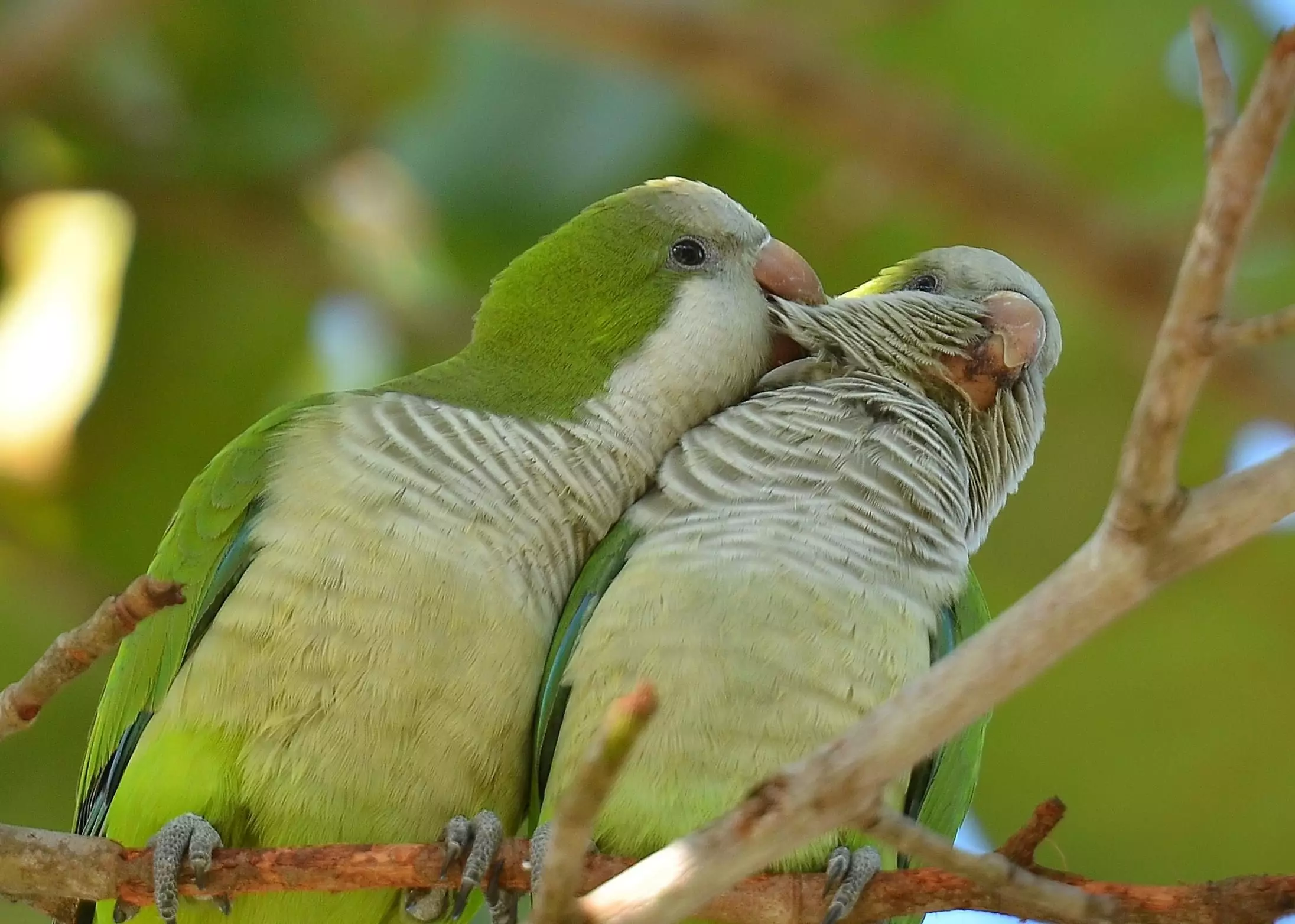When discussing companion birds, Quaker parrots, also known as monk parakeets, often steal the spotlight due to their engaging personalities and vocal prowess. These small yet vibrant birds pack an abundance of charm and quirky traits that make them desirable pets for both novice and experienced bird owners. However, potential owners should be aware of the unique requirements and legal considerations that accompany the care of Quaker parrots before bringing one into their home.
The Quaker parrot (Myiopsitta monachus) is a captivating species, typically measuring around 12 inches in length and weighing between 4 and 5 ounces. Their lifespan in captivity can be quite remarkable, often ranging from 20 to 30 years, some even surpassing this age with proper care. Originating in a restricted region of southern South America—which includes parts of Bolivia, Brazil, and Argentina—these birds thrive in woodland habitats and are highly social creatures, often forming close-knit communities. Their unique nesting behavior, constructing multi-room nests, further emphasizes their communal nature and intelligence.
However, it is essential to note that Quaker parrots are treated unequally across various regions in the United States, with some states imposing restrictions or outright bans on ownership due to concerns about their impact on local ecosystems. Therefore, before committing to adopting a Quaker parrot, potential owners must ensure they are compliant with both local and federal laws.
One of the most alluring aspects of Quaker parrots is their lively and outgoing personalities. They radiate a joyful energy that often manifests in playful antics and vocalizations—entertaining their human companions with their chattiness and mimicry abilities. With a character reminiscent of larger species of parrot, but within a smaller body, Quakers truly embody the notion of charisma. They thrive on interaction, often establishing a strong bond with their owners, making it crucial to invest time into socialization and training.
Without proper social interaction, Quaker parrots may develop behavioral issues, so it’s vital for owners to engage with them regularly, providing not just physical companionship but also mental stimulation. Their inclination towards learning human language is impressive; many Quakers boast extensive vocabularies and can form simple phrases, showcasing their intelligent nature and social capacity.
Dietary requirements are pivotal in ensuring the overall health and well-being of Quaker parrots. Their primary diet should consist of high-quality, commercially formulated pellet mixes complemented by fresh fruits, vegetables, and occasional treats, ensuring a balanced intake of nutrients. It is critical to include various colorful fruits and veggies, as they naturally enrich a Quaker’s diet and keep mealtime exciting. Overindulging in high-fat foods such as seeds—often given as treats—can lead to obesity and related health complications like fatty liver disease or nutrient deficiencies.
Adhering to a routine feeding schedule is essential. It is highly recommended to provide a standard measure of pellets (approximately 3 tablespoons daily) alongside at least a quarter cup of fresh produce each day. Leftover food should be removed after a day to maintain cleanliness and hygiene, an important consideration for the often-messy eater that Quaker parrots are known to be.
To foster a happy and healthy Quaker parrot, owners need to create a stimulating and secure environment, a place where these energetic birds can thrive. Quakers require ample space to move around, ideally housed in a sturdy cage of at least 18 inches square as a minimum—a larger enclosure is preferable to accommodate their playful nature. The placement of the cage should avoid direct sunlight and drafts, as Quakers can be sensitive to temperature extremes.
When outside their cage, it’s paramount to provide a bird-safe area for them to explore. This space should be free of hazards such as open windows and toxic plants. Interactive toys and climbing structures can keep them engaged, allowing them to burn off energy while promoting their natural instincts to play.
Quaker parrots can exhibit territorial behaviors, especially concerning their cages. They take pride in their home and may react defensively if they feel threatened. When introducing a new Quaker or any other pet into the environment, it’s critical to supervise interactions closely. Moreover, their confident disposition can lead them to challenge larger animals, which could cause potential conflicts.
While Quakers are often sociable, they can also become bored or anxious if neglected. Therefore, it’s vital to keep them busy with diverse activities, training opportunities, and companionship. Understanding their behavioral traits is essential for ensuring a harmonious living situation for both the bird and its human companions.
Quaker parrots provide immense joy, companionship, and entertainment, but they require a committed owner who appreciates their social nature and diverse needs. Through careful consideration of their personality, dietary preferences, and environmental requirements, owners can enjoy a fulfilling relationship with these remarkable birds. If considering adopting a Quaker parrot, it is advisable to engage with reputable breeders or bird adoption organizations to ensure a healthy and well-socialized pet that will undoubtedly enrich your life for years to come.

